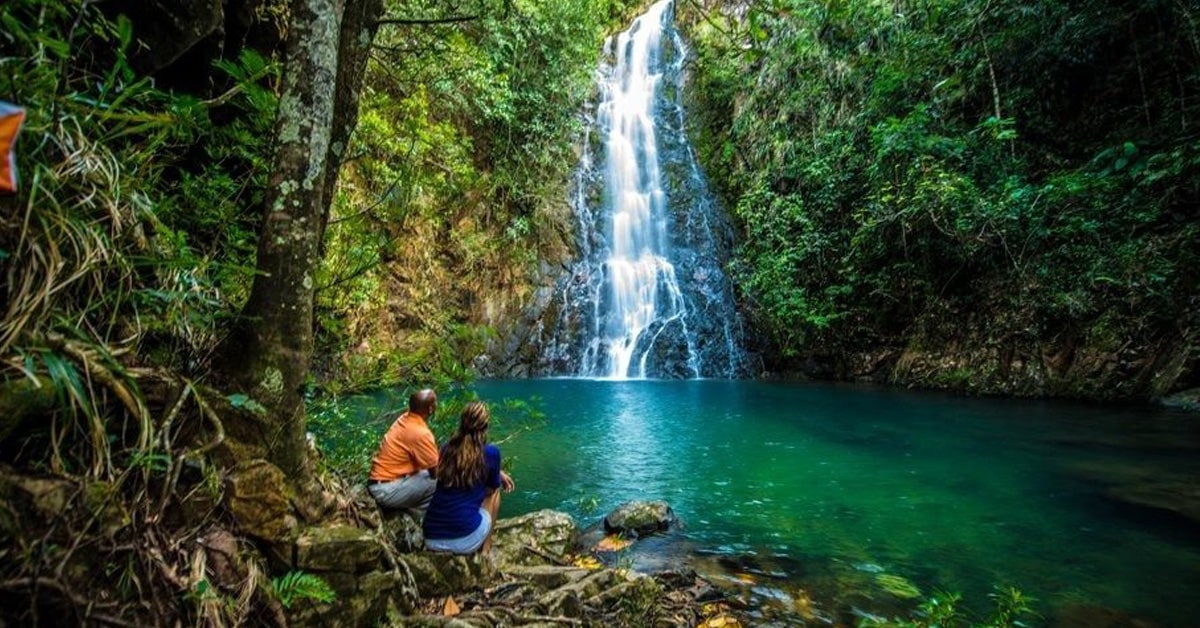Quick Links: About Us - Contact Us

Belize, a jewel nestled between Mexico and Guatemala, is a sanctuary for nature lovers and sustainability seekers alike. With lush rainforests, crystal-clear waters, and the second-largest barrier reef in the world, it’s no surprise that eco-tourism is at the heart of Belize’s identity.
But Belize is doing more than offering scenic views—it’s becoming a global model for how travel can support conservation, protect biodiversity, and empower communities. In 2025, travelers don’t just visit Belize—they help preserve it.
What Makes Belize a Leader in Eco-Tourism?
Eco-tourism is all about responsible travel that minimizes impact and maximizes positive change—and Belize has been leading the charge long before it was trending.
Here’s why Belize is a model for sustainable travel:
- Over 40% of its land and sea is protected in parks, reserves, and marine sanctuaries
- Belize banned offshore oil drilling to protect its marine ecosystems
- Local communities are heavily involved in wildlife protection and cultural tourism
From coral reefs to jaguar corridors, eco-tourism is helping Belize balance economy and ecology.
Marine Conservation: Protecting the Belize Barrier Reef

One of Belize’s biggest treasures is the Belize Barrier Reef Reserve System, a UNESCO World Heritage Site and a haven for over 500 species of fish and marine life.
In recent years, eco-tourism initiatives have made huge strides in marine conservation:
- Citizen science snorkeling tours where travelers help identify coral species
- Reef-safe sunscreen regulations to prevent chemical damage
- Lionfish hunting expeditions, which remove invasive species threatening the reef
Dive shops and marine lodges now blend adventure with awareness, giving travelers a chance to protect the underwater world while exploring it.
Jungle Lodges & Rainforest Retreats with a Purpose

Belize’s rainforests are home to toucans, howler monkeys, tapirs, and even jaguars. Eco-lodges nestled within these ecosystems offer immersive, low-impact stays that support conservation efforts.
Key features of Belizean eco-lodges in 2025:
- Off-grid living with solar power and compost toilets
- Onsite reforestation projects and permaculture gardens
- Wildlife monitoring and guest participation in conservation activities
Staying in these properties directly supports protected areas and Indigenous-led conservation efforts, especially in the Cayo and Toledo districts.
Unlock Exclusive Tips, Offers, and Guides.
Subscribe now and be the first to access this limited-time offers.
Community-Based Tourism: Travel That Empowers
One of the most inspiring trends in Belize is the rise of community-based tourism, which gives locals ownership over their culture and land.
Visitors can:
- Tour Garifuna villages and learn drumming, cooking, and traditional dance
- Join Maya-led hikes to ancient ruins and sacred caves
- Participate in artisan workshops or cacao farm visits
In 2025, more travelers are choosing experiences that benefit the people who live in the destination—not just foreign tour operators or investors.
Wildlife Conservation Through Tourism
From manatees and sea turtles to jaguars and scarlet macaws, Belize’s wildlife is a huge draw. Many organizations now run wildlife conservation tourism programs that involve:
- Tracking wild cats in the Cockscomb Basin Wildlife Sanctuary
- Visiting manatee rehabilitation centers
- Supporting birding tours that fund habitat preservatio
By paying to see these species in the wild, travelers contribute to their long-term survival.
Tips for Responsible Travel in Belize
Want to be part of the conservation effort during your trip? Here’s how you can travel consciously in Belize:
- Stay at certified eco-lodges (look for Green Globe, EarthCheck, or local sustainability awards)
- Use reef-safe sunscreen and avoid single-use plastics
- Support local guides and tour operators
- Book activities that include educational and conservation components
- Leave no trace—respect wildlife, trails, and cultural sites
The Future of Eco-Tourism in Belize
As the world becomes more conscious of travel’s environmental impact, Belize is well-positioned to lead. In fact, the country has already outlined a National Sustainable Tourism Master Plan, which includes:
- Limiting development in fragile ecosystems
- Increasing renewable energy use in the tourism sector
- Training locals in eco-tourism and conservation careers
The goal? To ensure that tourism never threatens what makes Belize so special in the first place.
Conclusion: Come for the Beauty, Stay for the Mission
Belize is more than a destination—it’s a chance to be part of something bigger. With its rich biodiversity, strong community roots, and commitment to conservation, Belize proves that you don’t have to choose between adventure and impact—you can have both.
So the next time you book a trip, ask yourself: Is your travel footprint leaving the world better than you found it?
In Belize, the answer can be a resounding yes.



